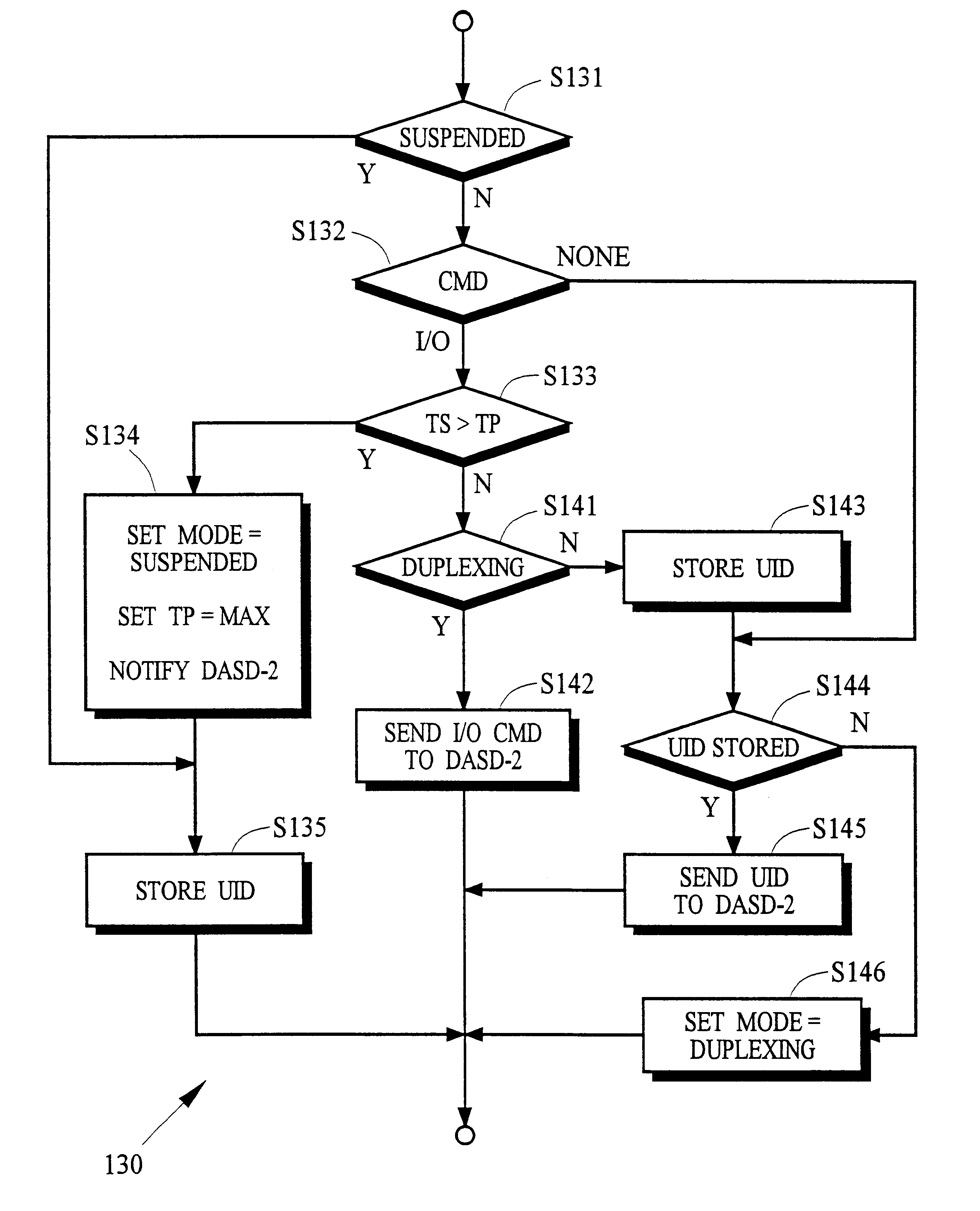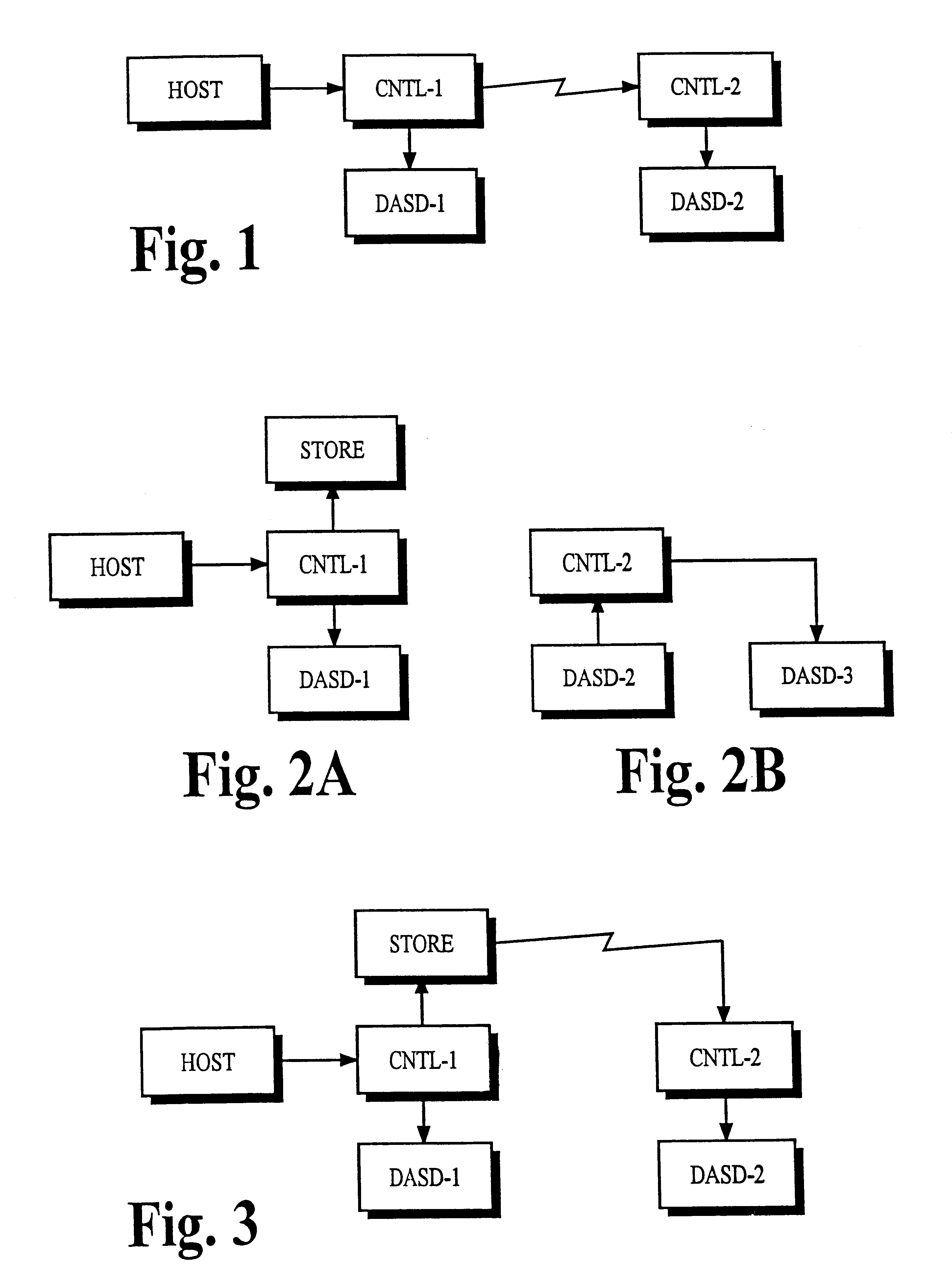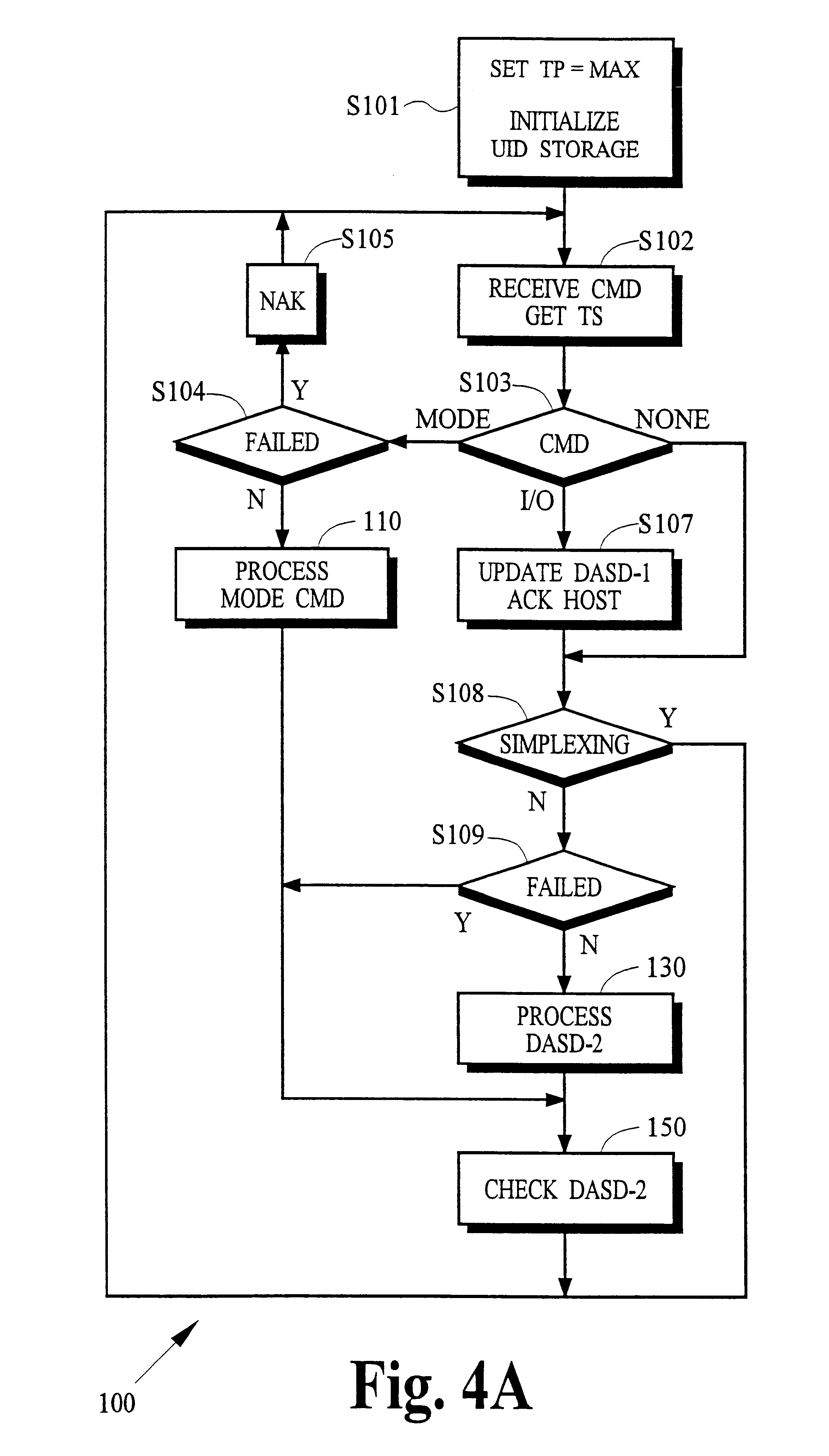Remote data copy using a prospective suspend command
a technology of remote data and suspend command, applied in the direction of fault response, computation using denominational number representation, instruments, etc., can solve the problems of serious financial consequences, disruption or delay penalties, and only a few minutes of application interruption in the availability of applications, so as to improve the availability of applications and reduce time and/or resources
- Summary
- Abstract
- Description
- Claims
- Application Information
AI Technical Summary
Benefits of technology
Problems solved by technology
Method used
Image
Examples
Embodiment Construction
A. Overview
FIG. 1 illustrates a computer system in which computer HOST sends a variety of commands such as read and write commands to primary controller CNTL-1, which in turn controls the operation of one or more primary data recording devices DASD-1 to read and write information in response to the commands received from computer HOST. A communication link conveys information between primary controller CNTL-1 and secondary controller CNTL-2 so that a remote copy of the information recorded on data recording devices DASD-1 can be recorded on one or more secondary data recording devices DASD-2 that are controlled by secondary controller CNTL-2.
The computer HOST may be essentially any type of information processing machine including so called mainframe computers, mini-computers and micro-computers. Examples of mainframe computers include the Skyline series of Hitachi Data Systems, Inc., Santa Clara, Calif., described in "Skyline Series Functional Characteristic," document number FE-95G...
PUM
 Login to View More
Login to View More Abstract
Description
Claims
Application Information
 Login to View More
Login to View More - R&D
- Intellectual Property
- Life Sciences
- Materials
- Tech Scout
- Unparalleled Data Quality
- Higher Quality Content
- 60% Fewer Hallucinations
Browse by: Latest US Patents, China's latest patents, Technical Efficacy Thesaurus, Application Domain, Technology Topic, Popular Technical Reports.
© 2025 PatSnap. All rights reserved.Legal|Privacy policy|Modern Slavery Act Transparency Statement|Sitemap|About US| Contact US: help@patsnap.com



